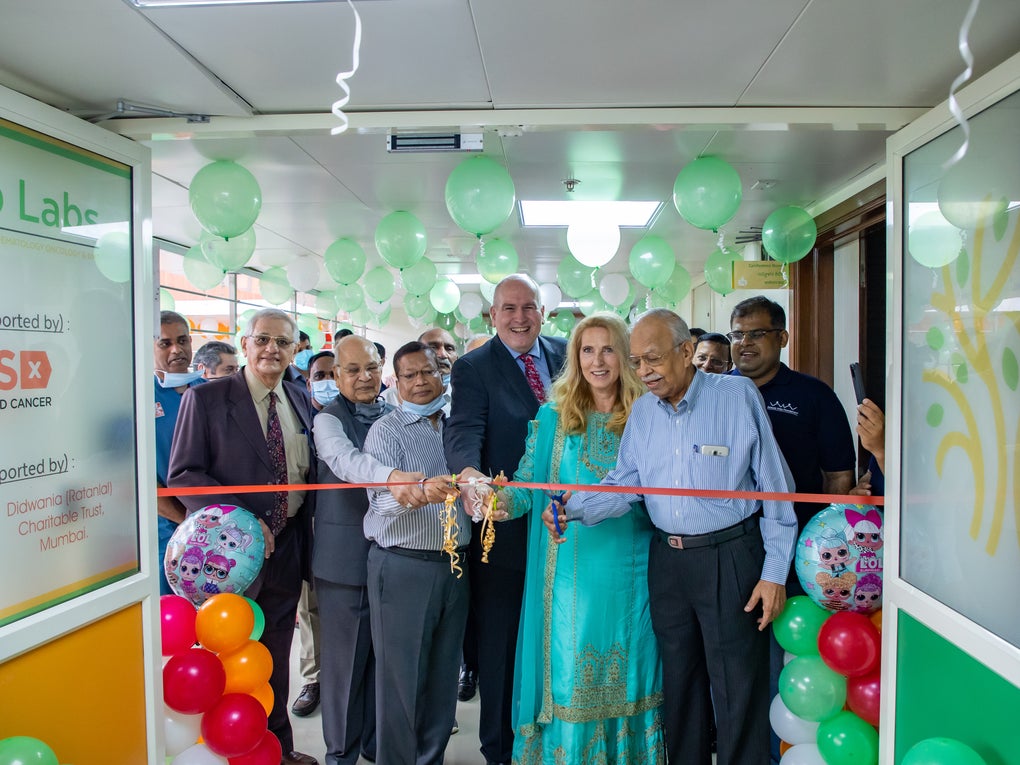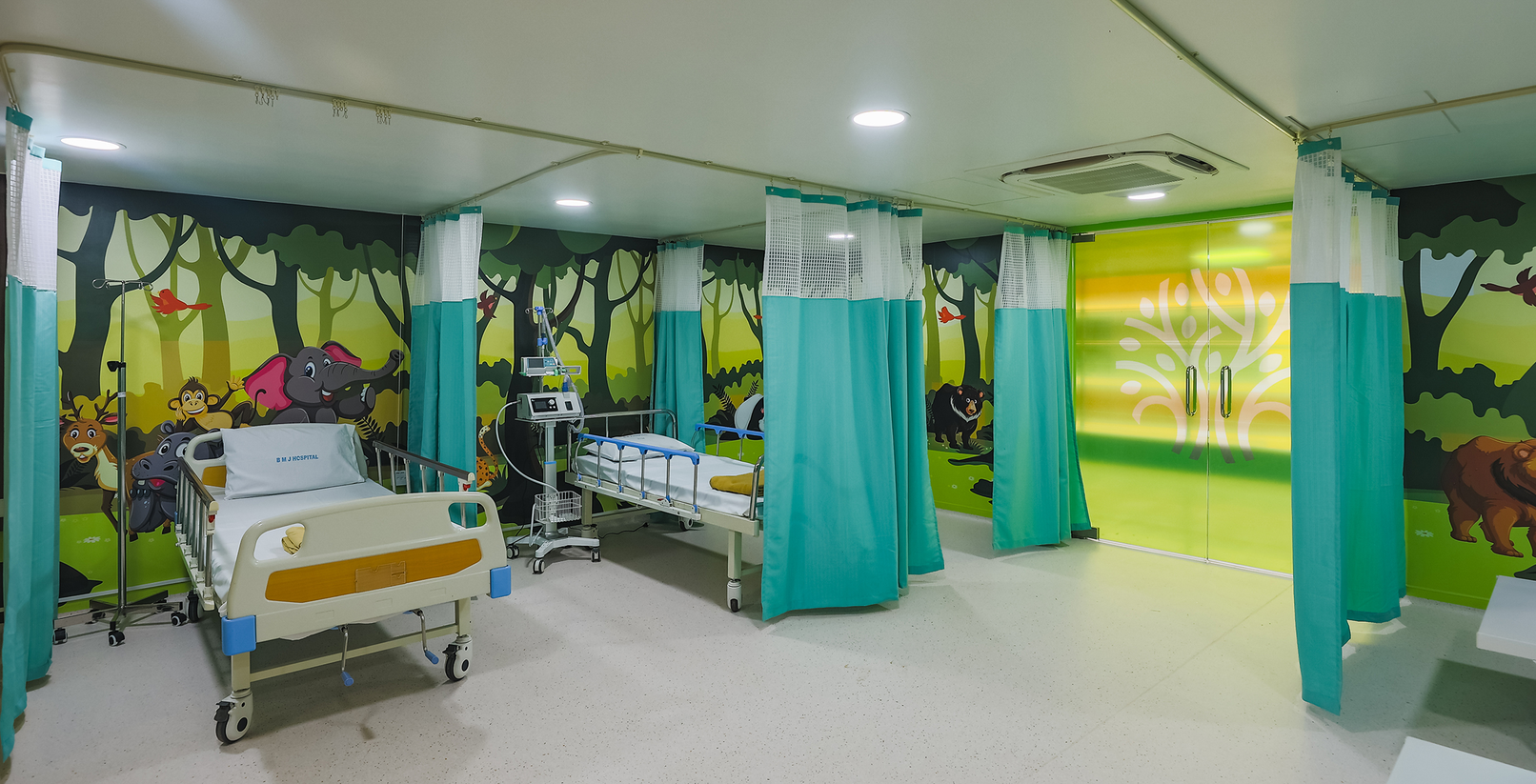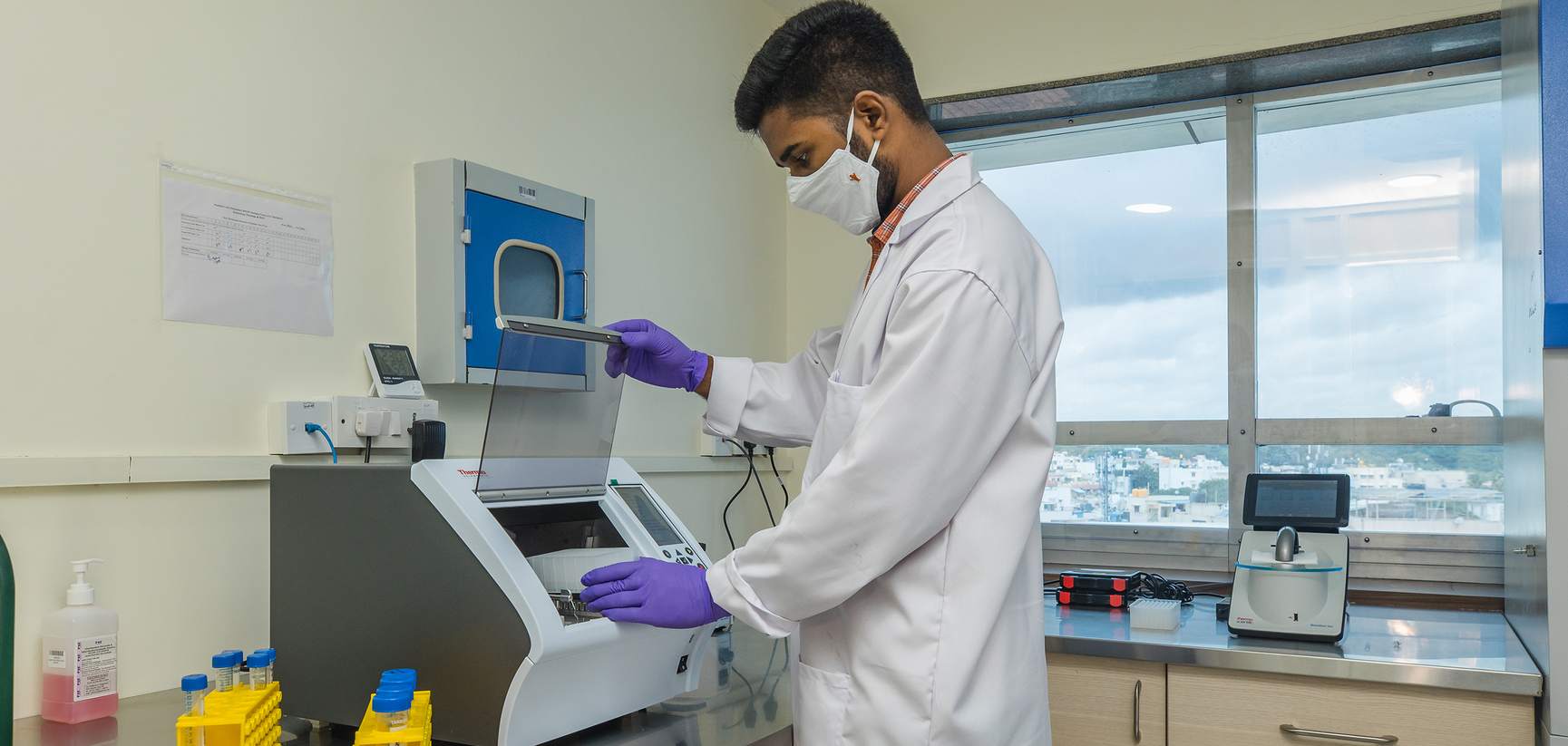
DKMS funds Bone Marrow Transplant Center in Bangalore
In our mission to improve the access to transplantation for patients in need, we have funded the new BMT Center with ~630,000 EUR / 740,000 USD. The non-profit organization Sankalp India Foundation operates the new unit with the medical advice from Cure2Children on the premises of the non-profit BMJ Hospital in Bangalore.
With over 42 million carriers, India is known as the thalassemia capital of the world. It is estimated that more than 10,000 children are born with thalassemia every year. The need for transplants in children is therefore extremely high while there are not enough capacities in hospitals to provide medical treatment and necessary care.
“The only effective way to address blood cancer and other life-threatening blood diseases is with a macro perspective. 30 years after our foundation, we are therefore expanding the scope of our activities: In addition to registering as many potential blood stem cell donors as possible, we extend our support to patients whose geographic location or socio-economic status impedes the access to transplantation. Our aim is to help build a better foundation for treatment and to reduce the financial burden on patients in need by contributing to the transplantation costs. It is a milestone for our organization that the BMT Unit in memory of Mechtild Harf opens its doors today for children in need,” said Dr. Elke Neujahr, Global Chief Executive Officer of DKMS, at the press conference.

In the near future, there will be about 120 transplants per year in this unit, the majority of them for thalassemia patients. “This is not only wonderful for the additional patients who will be cured, but this number also makes the program one of the largest – or maybe even the largest – and most relevant worldwide in this field,” says Dr. Alexander Schmidt, DKMS Global Chief Medical Officer. “At the same time, it also results in new responsibilities, namely to actively contribute to further raising the treatment standards for thalassemia patients through scientific activities such as prospective clinical trials. We are ready to support the Sankalp India Foundation in this challenge with the competence and experience of our Clinical Trials Unit.”
High-quality treatment and care
The BMJ Hospital-Sankalp Center for Pediatric Hematology Oncology & BMT in Memory of Mechtild Harf supported by Cure2Children is located on a dedicated floor on the premises of the hospital. The facilities include a BMT unit with 10 beds equipped with HEPA filters ensuring a protective environment for patients. For patients in particularly critical condition an intensive care unit with three beds has been set up. An isolation room, a pre-transplant day care area with a play area for the children as well as a training and education facility are also part of the Center. DKMS has further funded a molecular laboratory on the same floor. This will enable speedy and cutting-edge genetic diagnostics, transplant genetics analysis and pathogen detection and reduce the costs per transplant as these investigations can be carried out inhouse. The Center is also home to the central referral pathology lab for Sankalp which will cater to the needs of thalassemia care and management across the country.

“State-of-the-art infrastructure in combination with a dedicated team of highly-trained specialists and external international experts acting as consultants will ensure that we can deliver the best possible clinical outcomes for our patients. Together with our BMT Center in Ahmedabad, this Center will bring the total number of beds for transplantation to 14 so that we can continue to pursue our goal of a ‘Thalassemia Free India’,” says Lalith Palmar, President of the Sankalp India Foundation.
The Pediatric Hematologist and Oncologist, Bone Marrow Transplant Specialist and Medical Coordinator at the Cure2Children Foundation, Dr. Lawrence Faulkner, brought in his exceptional medical expertise in the design of the BMT unit, “A highly committed multidisciplinary core team of 18 experts will provide specialized care and ensure the patients’ well-being. In a joint effort with Sankalp, we were able to create a set-up in which doctors can perform high-quality treatment in a cost-effective way while all global standards and infection control are met.”
Mechtild Harf’s legacy
The unit is named after Mechtild Harf, loving wife and mother of two children, who lost her battle against leukemia. On September 16, the Harf family commemorated the 30th anniversary of her death. Peter Harf founded DKMS in 1991. Mechtild’s fate turned a small private initiative into the largest international network of blood stem cell donor centers in the world with sites in seven countries on five continents.
Programs to improve the access to transplantation
Around one third of patients find a matching blood stem cell donor within their own family. Yet, in countless cases, patients cannot get access to treatment due to socio-economic and infrastructural barriers. To address the challenges so many patients and families in low- and middle-income countries are faced with, we have established several support programs.